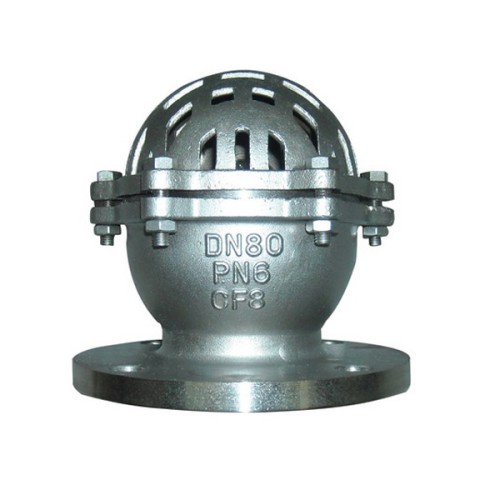ball valve ss
Understanding Ball Valves A Focus on Stainless Steel Variants
Ball valves are an essential component of various industrial applications, prized for their reliability and efficiency in regulating the flow of liquids and gases. Among the different materials used for manufacturing ball valves, stainless steel (SS) stands out due to its unique properties that make it suitable for a wide range of environments. This article explores the features, advantages, applications, and maintenance of stainless steel ball valves.
What is a Ball Valve?
A ball valve is a type of quarter-turn valve that uses a hollow, perforated, and pivoting ball to control flow. When the valve is open, the ball's hole is aligned with the flow direction, allowing fluid to pass through. Conversely, when it is closed, the hole is perpendicular to the flow, blocking it. The simplicity of this design provides several benefits, including low pressure drop and tight sealing capabilities.
Properties of Stainless Steel Ball Valves
Stainless steel ball valves are typically made from various grades of stainless steel, including 304, 316, and 316L. Each grade offers different levels of corrosion resistance, strength, and temperature tolerance.
1. Corrosion Resistance Stainless steel is known for its excellent resistance to corrosion, which makes it ideal for applications involving harsh chemicals or high humidity. Grade 316 stainless steel, for instance, contains molybdenum, which enhances its resistance to pitting and crevice corrosion.
2. Durability The inherent strength of stainless steel allows ball valves to withstand high pressures and temperatures, making them suitable for a wide range of industrial applications.
3. Non-reactive Stainless steel does not impart any taste or odor to the fluids it contacts, making it a preferred choice in industries such as food processing and pharmaceuticals.
Advantages of Using Stainless Steel Ball Valves
1. Long Lifespan Stainless steel ball valves have a longer service life compared to traditional materials, reducing maintenance and replacement costs over time.
2. Easy Operation The quarter-turn mechanism provides quick and effortless operation. This characteristic is especially beneficial in applications that require frequent valve adjustments.
4. Versatility These valves can handle a wide range of fluids, including corrosive liquids, gases, and slurries. They are widely used in oil and gas, water treatment, chemical processing, and HVAC systems.
ball valve ss

Applications of Stainless Steel Ball Valves
Stainless steel ball valves are utilized in various industries due to their robustness and adaptability. Some common applications include
1. Oil and Gas They are employed in pipelines and processing plants for LNG, natural gas, and crude oil transport due to their ability to handle extreme pressures.
2. Chemical Processing In the chemical industry, stainless steel ball valves are critical in controlling the flow of corrosive chemicals, ensuring safety and efficiency during processing.
3. Food and Beverage The food industry relies on stainless steel ball valves for their sanitary properties and ability to maintain product integrity.
4. Water Treatment These valves are used in water distribution systems for their durability and ease of maintenance.
Maintenance of Stainless Steel Ball Valves
Proper maintenance of stainless steel ball valves is crucial for ensuring their longevity and performance. Here are some tips for effective maintenance
1. Regular Inspection Check for signs of wear, corrosion, or leakage. Regular assessments can prevent more significant issues down the line.
2. Cleaning Depending on the application, cleaning may be necessary to remove any residual substances that could affect valve performance.
3. Lubrication For manual ball valves, ensure that the stem and packing are adequately lubricated to provide smooth operation.
4. Replacement of Seals Periodic replacement of seals can prevent leaks and maintain the integrity of the valve.
Conclusion
Stainless steel ball valves play a pivotal role in various industries, providing reliable, efficient, and long-lasting solutions for fluid control. Their unique properties, such as corrosion resistance and durability, make them an ideal choice for a wide range of applications. By understanding their features and maintenance requirements, industries can optimize their operations and ensure safety and efficiency in fluid management. As technology advances, the role of these valves will likely expand, further solidifying their importance in the industrial landscape.
-
The Key to Fluid Control: Exploring the Advantages of Ball Valves in Industrial SystemsNewsJul.09,2025
-
The Versatile World of 1, 2, and 3 Piece Ball ValvesNewsJul.09,2025
-
Stainless Steel Ball Valves: The Ideal Choice for Efficient Flow ControlNewsJul.09,2025
-
Optimizing Fluid Control with Ball Float ValvesNewsJul.09,2025
-
Manual Gate Valves: Essential for Control and EfficiencyNewsJul.09,2025
-
Everything You Need to Know About Butterfly ValvesNewsJul.09,2025
-
The Versatility of Wafer Type Butterfly ValvesNewsJul.08,2025




